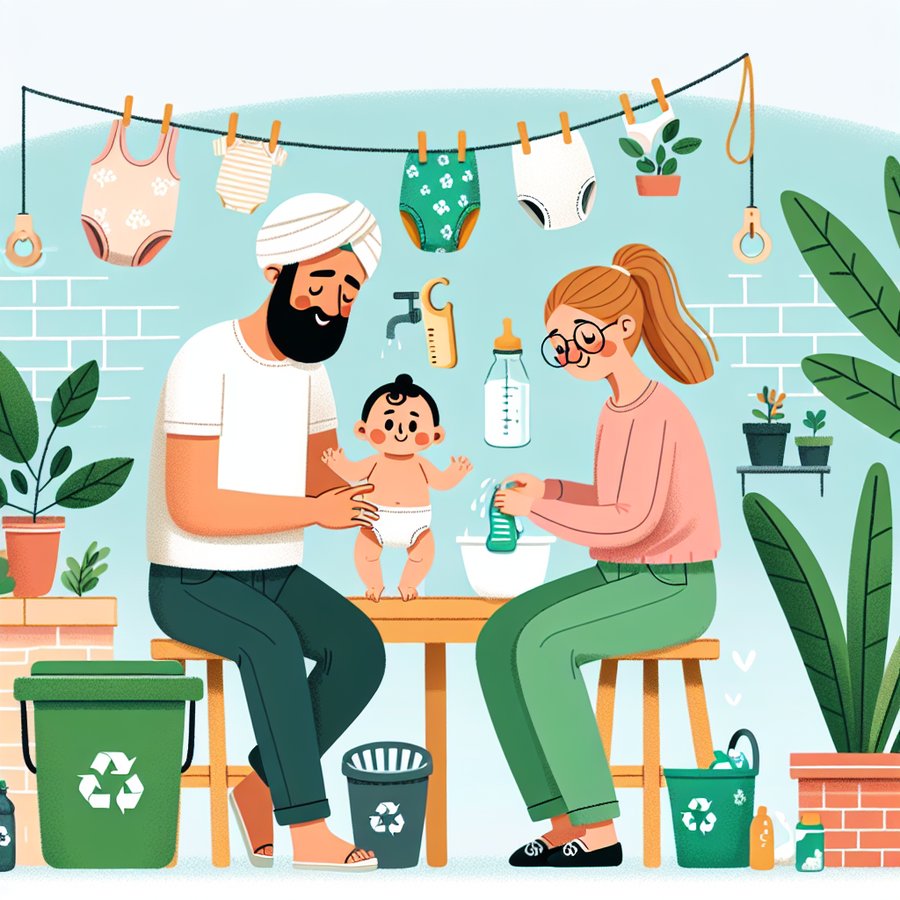Eco-friendly parenting: Reducing your baby’s environmental footprint is a mindful approach that is gaining momentum among new and expecting parents. It involves adopting sustainable practices that contribute to preserving the environment for future generations. This guide provides a comprehensive look into eco-friendly parenting, offering practical advice and strategies to minimize your baby’s ecological impact.
Eco-Friendly Parenting: Reducing Your Baby’s Environmental Footprint
Embarking on the journey of eco-friendly parenting is not just about making a single choice; it’s about embracing a lifestyle that promotes sustainability. From the diapers you choose to the way you set up your nursery, every decision contributes to reducing your baby’s environmental footprint. But why is this important? According to a study by the Environmental Protection Agency (EPA), the average American generates about 4.9 pounds of waste daily, a significant portion of which can be attributed to household waste, including baby-related products.
To truly embrace eco-friendly parenting, it’s essential to understand the impact of our choices and seek alternatives that align with sustainable living principles. This not only benefits the environment but also instills a sense of responsibility and eco-consciousness in your children as they grow.
Choosing Sustainable Baby Products
One of the first steps in adopting eco-friendly parenting practices is selecting sustainable baby products. From diapers to baby clothes, and feeding supplies, there are eco-friendly alternatives for nearly everything. Opting for products made from organic, biodegradable, and non-toxic materials can significantly reduce your baby’s environmental footprint. For example, choosing environmentally safe products for your baby is a step towards a healthier planet and a healthier child.
Besides, investing in high-quality, durable items that can be reused or passed down not only saves money in the long run but also lessens waste. When shopping for baby products, look for certifications like GOTS (Global Organic Textile Standard) for textiles and FSC (Forest Stewardship Council) for wooden items, ensuring they meet strict environmental and ethical standards.
Minimizing Waste with Cloth Diapers and Eco-friendly Wipes
Diapers are a necessity for babies, but they are also a significant source of waste. The EPA estimates that disposable diapers contribute over 4 million tons of waste to landfills each year in the United States alone. Switching to cloth diapers can dramatically reduce this impact. Modern cloth diapers are convenient, leak-proof, and come in various designs and materials. Additionally, using eco-friendly wipes or washable cloth wipes instead of disposable ones can further minimize waste.
For those new to cloth diapering, numerous resources and communities offer support and advice. This transition not only mitigates waste but can also be cost-effective over time, sparing the environment and your wallet. For more insights on reducing waste, consider exploring eco-friendly parenting tactics that emphasize sustainability and environmental consciousness.
Adopting a Green Lifestyle Beyond Baby Care
Eco-friendly parenting extends beyond baby care products; it’s about embodying a lifestyle that values sustainability in all aspects of life. This includes being mindful of water and energy consumption, choosing sustainable modes of transportation, and supporting eco-conscious brands. Every small change contributes to a larger impact, paving the way for a healthier planet for our children.
Additionally, teaching children about the importance of caring for the environment through everyday actions fosters a sense of responsibility and awareness from a young age. Activities like gardening, recycling, and conserving water are practical ways to engage children in eco-friendly practices. For more tips on living a sustainable lifestyle, visiting creating a sustainable and eco-friendly nursery can offer valuable insights.
In conclusion, eco-friendly parenting: Reducing your baby’s environmental footprint is a rewarding journey that benefits both your family and the planet. By making conscious choices and adopting sustainable practices, parents can lead by example, fostering a greener future for generations to come. Remember, each small step towards eco-friendly parenting contributes to a significant positive impact on the environment.
To further explore eco-friendly parenting strategies and tips, visit Earth Day’s guide to eco-friendly parenting. This resource offers extensive advice and ideas for reducing your family’s ecological footprint, helping you to embrace a greener lifestyle fully.













